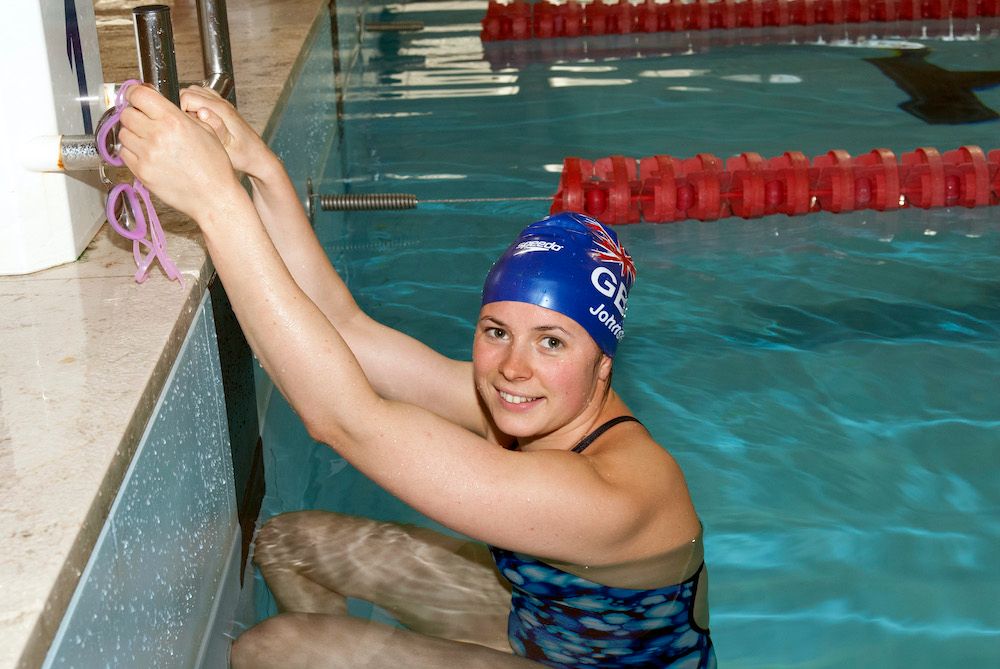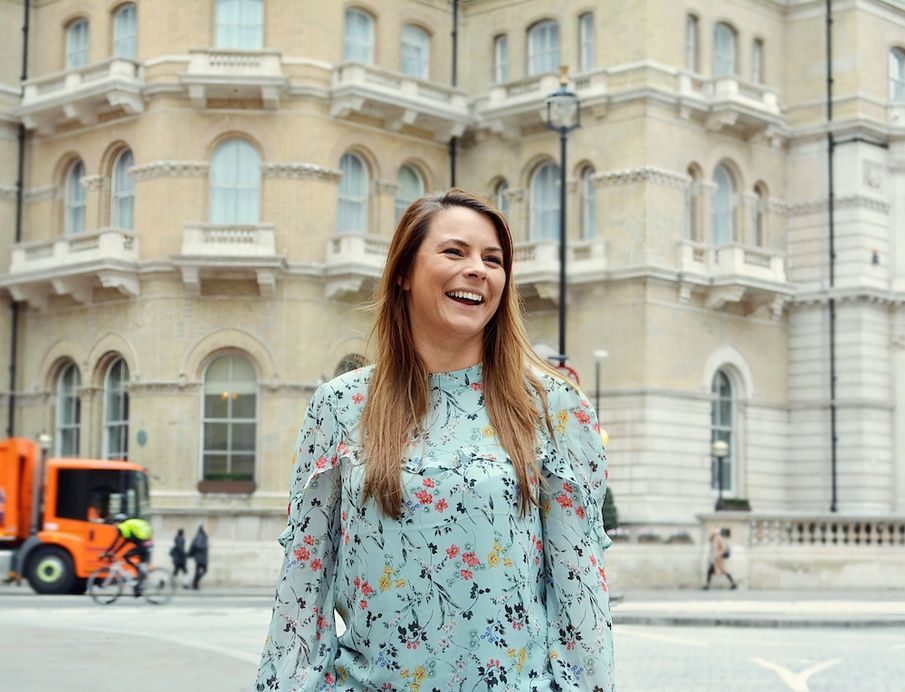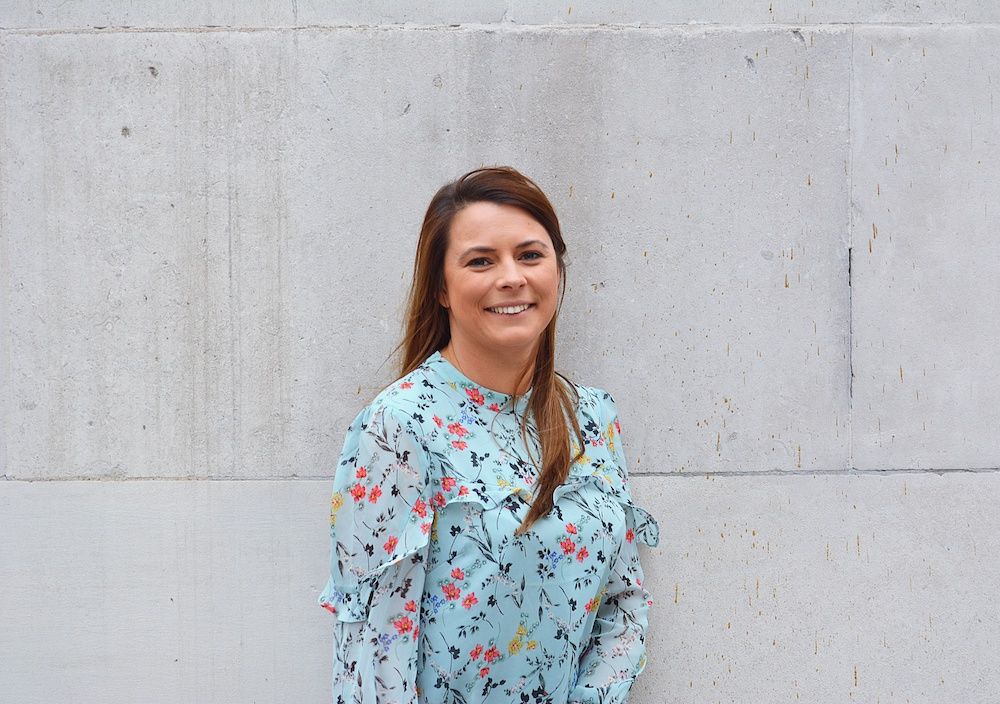Paralympic swimming gold medallist Liz Johnson has swapped the pool for the boardroom in a bid to close the disability employment gap for good
My career was re-routed in a single moment in 2017. I was watching a report about the disability employment gap, and heard a statistic that left me shocked and appalled: the gap stood at more than 30%, and had remained that way for a decade. This meant that barely half of the UK’s 13.9 million disabled people were employed, compared to 80% of able-bodied people. Hearing this stopped me in my tracks.
It stood in complete contrast to my own experience as a disabled athlete. On a human level, I related so closely to the people I was hearing about. But as a recently retired Paralympian, my own career was largely free from most of the barriers that block the path of many.
Winning my medals came with a huge amount of hard work, but growing up – and throughout my swimming career – I never really considered myself to be disabled. I now realise that I was simply naïve about the microaggressions society exhibits to discriminate against disabled people. These impair us more than our disabilities ever could. But at that point in my life, I was doing almost everything my able-bodied friends were doing; I just had to go about it in a different way. This outlook was reaffirmed when I went swimming.

Liz training in the pool
My mum first took me to the pool when I was three. I was born with cerebral palsy, so she enrolled me in swimming classes to strengthen my muscles. I felt free in the pool and powered through my training sessions. I wasn’t inherently gifted, but swimming was a great outlet, and I embraced it with everything I had. It was one of the few places where my disability didn’t seem to matter.
Over the course of my career, I won five gold medals across European and World Championships; and although I failed to qualify for the 2000 Paralympics in Sydney, I went on to get bronze, silver and gold in the following three Games. Beijing in 2008 was bitter sweet. My mum – my best friend and my biggest supporter – passed away not long beforehand. I also sustained a shoulder injury which left me without the use of my strongest arm in training. But I still got the gold.
My can-do attitude ensured my hard work in the pool was rewarded. I realise now that this is what sets my experience of being disabled at odds with that of so many others. Although my disability determined my race classification, it didn’t determine my chances of success. So many disabled people have this same drive to succeed, but are attempting to work in sectors that don’t champion their difference. Instead, they’re met with closed doors and excuses.
The thing that eventually slowed me down was completely unrelated to being disabled. I had to have surgery for a hernia in 2015 and fell behind with training. As a result, I didn’t go for the Games in Rio de Janeiro that summer. I called time, retired from the sport, and heard that news report on the employment gap while embarking on new beginnings.
Some setbacks are beyond your control – an injured shoulder for example. But on hearing about the employment gap, I refused to see disability as a setback or accept that it should control a person’s opportunities. It was the employers who needed to change. My life experiences taught me that just because you do things differently, doesn’t mean you can’t do them at all. So, I was determined to carve out a place for the disabled community in the world of work I was about to enter into myself.
It was around this time that I met Steve Carter, who’d been in recruitment for more than 30 years, and was tired of being presented with the same pool of candidates. We were arriving at the same problem from different angles: diverse talent was being ruled out of the hiring game before it had even started, and we needed to take action. We had our lightbulb moment, and The Ability People (TAP) was born.
We created TAP to change the way businesses approach diversity, and naturally, that starts with our own team. Everyone at TAP has some form of disability, and is committed to achieving diversity. We’re a melting pot of different ethnicities, ages, and genders, and we meet in the middle to talk honestly and openly to businesses about our experiences, and break down barriers to access.
"My life experiences taught me that just because you do things differently, doesn’t mean you can’t do them at all"
We work alongside businesses, transforming their culture and operations to ensure everything is authentically inclusive. Without laying these foundations, you can’t support truly diverse workforces.
It was intimidating moving from the pool to the boardroom, but I knew we had a worthy cause and, evidently, so did the big corporate players. Not long after launching, we won contracts with Chelsea FC and HSBC. We’ve since evolved even further to launch Podium – the first jobs platform for disabled freelancers. In the wake of Covid-19, many employers are realising that they need remote workers just as much as disabled people need flexible jobs. So, we’re connecting the two to create meaningful work for disabled freelancers.
Over the past two years I’ve grown used to facing a different kind of arena, and a different kind of crowd. I count speaking about disability at the LinkedIn conference in Dallas, and being nominated for the BBC’s prestigious 100 Women list in 2018, among my greatest achievements; and with TAP and Podium we’ve made headway we’re really proud of.
Photography | Amy Mace
But the employment gap still stands at 28% in the UK. Add to this the economic fallout of the health crisis, and it becomes clear why disabled people need our support more than ever.
In many ways though, the coronavirus lockdown has brought the experience of the able-bodied population in line with that of disabled people. The rest of the world is adapting to restrictions, challenges, and health risks as part of everyday life – as well as working from home. Employers are waking up to the fact that flexibility works, meaning the time has never been better to embrace a pool of talent that stands to gain a huge amount.
Steve, the TAP and Podium team, and I will continue to work together to bring our ideas to life, to close the disability employment gap for good, and to empower disabled people to find jobs which don’t just meet their needs, but enable them to thrive.
I’ve lived my dream as a Paralympian. Now I want other talented, skilled, and passionate disabled people to achieve theirs. Because believe me, they’re more than capable.
Rachel Coffey | BA MA NLP Mstr says:
Liz highlights something so many of us miss – every one of us is different. It’s in our diversity our unique talents live and thrive, not despite it. It’s so striking to hear how society’s attitudes have been a barrier – but the good thing is that attitudes can shift, and Liz is at the forefront of enabling that to happen.
It’s so inspiring to see how Liz faces obstacles and champions change. We might not all be Olympians, but she reminds us we all have the power to help create that positive change.
Hero image | Photography by Amy Mace
To connect with a life coach to discuss embracing yourself and acheiving your goals, visit lifecoach-directory.org.uk



Comments